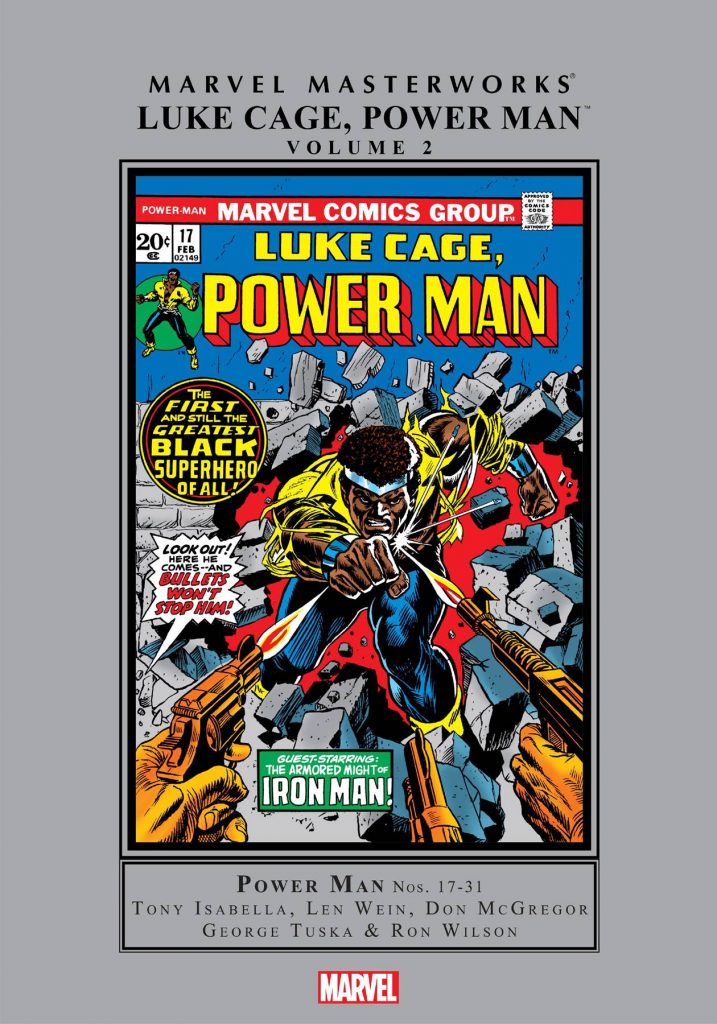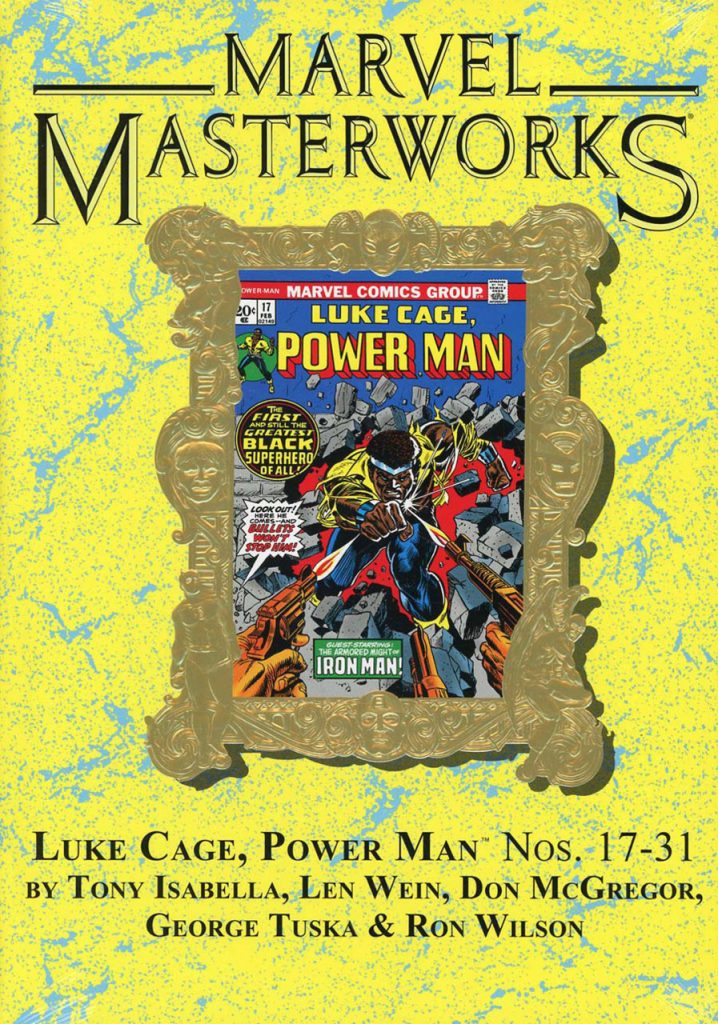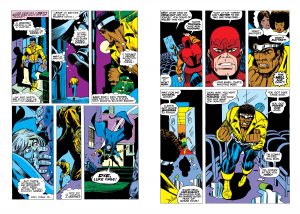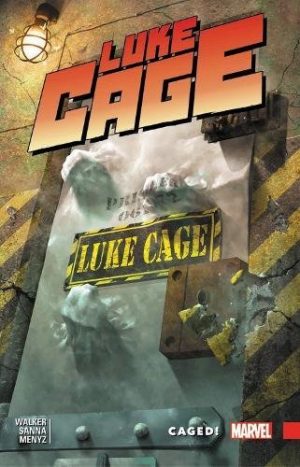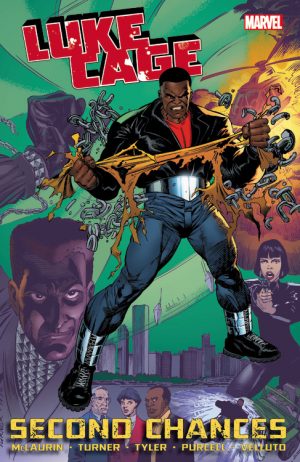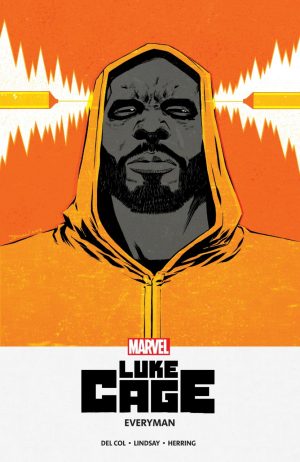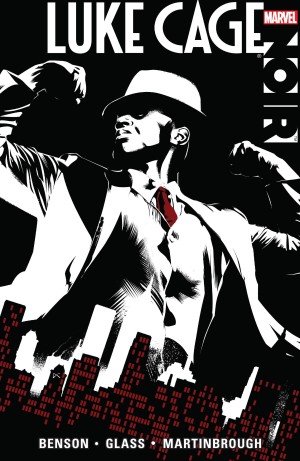Review by Frank Plowright
This second Masterworks printing of Luke Cage’s earliest appearances suffers from much the same ennui as the first. Tony Isabella’s introduction supplies some background information about retailer resistance to the idea of an African American superhero comic, yet it’s interesting how little racism is reflected in the stories. That fifteen reprinted issues have six different writers when back in the day Marvel series had regular creative teams speaks volumes.
There are as many artists, but three combine for the pages of a single story, and two more only draw a single story each. More pages are drawn by George Tuska than anyone else, and someone appears to have had a word with him, as his art, while never sparkling, displays more effort than in the previous collection. He provides backgrounds and people rather than close-up snarling faces. Ron Wilson loves the pose of Cage bent forward, striding toward the viewer fists clenched, as seen on the right hand sample page, as he uses it often. He’s a limited artist, though, able to provide the power Isabella notes in the introduction, but little grace. The same might be said of very early work by George Pérez, but some signature touches are already in place, such as a love for detailed rubble, and a willingness to use multiple small panels.
Despite the sometimes outrageous dialogue, which Isabella tones down, few of these stories provide Cage with a unique voice, while social problems are largely represented by gangsters. Isabella’s use of a gated community stands out, as does Len Wein’s Steeplejack villain skating as near to racism as Marvel felt permissible at the time, but for the most part Cage could be substituted by any hero. Perhaps another exception to that is the story in which he definitively claims the Power Man name from the villain who once used it. Credit to Isabella also for his introduction of Bill Foster’s new heroic identity, even if the once well-meaning name of Black Goliath now seems thoughtless, but little of the work has any real, well, power to it.
The one writer to make a real difference, sadly only over a three part story, is Don McGregor. His Harlem and gangsters may be every bit as contrived as those of the other writers, but they transmit as authentic. Villains Piranha Jones with his steel teeth and Cockroach Hamilton forever stuffing cheese snips into his mouth have a memorably seedy quality, and McGregor highlights urban poverty, racism, corporate accountability and drug use without making these issue-based stories. His captions and dialogue are occasionally overwritten, squashing the art, but McGregor’s stories are fast-paced with interesting little sidelines, such as constant problems with a vending machine. He also introduces the first establishment character to see the worth of Luke Cage, police detective Quentin Chase.
A cheaper alternative to this collection is Essential Luke Cage, Power Man Volume 1, reprinting all the stories from this and the first Masterworks volume in black and white instead. The exceptions are the final four here, which spill over into Volume 2. Or both Masterworks editions are combined as the bulky paperback Luke Cage: Retribution.
